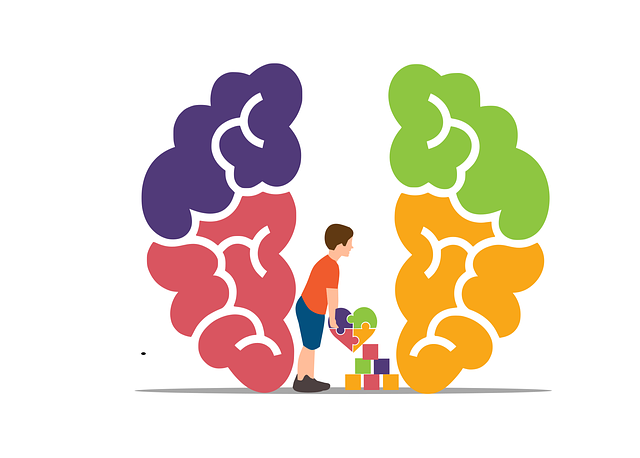Mental health professionals at Greenwood Village Depression Therapy face unique challenges, including burnout risk due to intense emotional work with trauma survivors. To mitigate these risks, they employ coping skills for resilience and refine communication techniques for professional boundaries. A comprehensive risk assessment framework considers individual and environmental factors, including cultural background and past trauma, using tailored Crisis Intervention Guidance and Healthcare Provider Cultural Competency Training. Proactive strategies involve robust client screening, early intervention by trained staff, and regular training on best practices and policy changes, ensuring a safe and supportive environment for effective mood management.
Mental health professionals confront unique risks daily, from burnout to secondary trauma. Understanding these hazards is paramount for delivering effective care. This article explores the intricacies of risk assessment within mental health practice, focusing on strategies employed by leading centers like Greenwood Village Depression Therapy. We’ll delve into common challenges, a comprehensive framework for assessing risks, and proven methods for mitigating and managing them in clinical settings.
- Understanding the Unique Risks in Mental Health Practice
- Greenwood Village Depression Therapy: An Overview of Common Challenges
- Developing a Comprehensive Risk Assessment Framework
- Strategies for Mitigating and Managing Risks in Clinical Settings
Understanding the Unique Risks in Mental Health Practice

Mental health professionals often find themselves at a unique intersection of intense emotional engagement and complex client scenarios. Unlike other fields, their work involves delving into clients’ most vulnerable states, grappling with personal struggles, and sometimes, trauma. This creates a distinct set of risks that extend beyond typical workplace hazards. For instance, burnout is a prevalent concern due to the high demand for empathy and resilience in prolonged therapy sessions. Furthermore, professionals must navigate the delicate balance between establishing therapeutic boundaries and fostering trusting relationships.
In Greenwood Village Depression Therapy and similar practices, effective risk management planning is paramount. It involves implementing strategies like coping skills development to enhance resilience against emotional exhaustion. Additionally, refining communication strategies can mitigate risks associated with miscommunication or boundary crossings, ensuring client safety and the professional’s well-being remain priorities.
Greenwood Village Depression Therapy: An Overview of Common Challenges

Greenwood Village Depression Therapy faces unique challenges due to the inherent complexities of treating mental health conditions. The therapeutic environment demands a delicate balance between providing supportive care and maintaining professional boundaries. Mental health professionals in this setting often grapple with managing intense emotions, ensuring client safety, and fostering trust while navigating potential risks.
Compassion cultivation practices have emerged as powerful tools to mitigate these challenges. By incorporating burnout prevention strategies for healthcare providers into their clinical approach, therapists can enhance self-care and resilience. Furthermore, well-designed mental health education programs can equip professionals with the knowledge and skills to recognize early warning signs of depression in both clients and themselves, thereby promoting timely intervention and effective treatment in Greenwood Village Depression Therapy settings.
Developing a Comprehensive Risk Assessment Framework

In developing a comprehensive risk assessment framework for mental health professionals, such as those offering depression therapy in Greenwood Village, it’s crucial to integrate diverse factors that can impact client safety. This includes not only identifying risks inherent in the individual’s mental health history but also considering environmental and social determinants. A robust framework should encompass the Client’s cultural background, socioeconomic status, access to support systems, and any past experiences with trauma or abuse, incorporating these into a holistic understanding of potential hazards.
For mental health professionals, this means going beyond standard assessment tools to incorporate Crisis Intervention Guidance tailored to specific populations and contexts. By integrating Healthcare Provider Cultural Competency Training into risk assessment protocols, practitioners can better recognize and address subtler signs of distress or escalating risks among clients from diverse backgrounds. This comprehensive approach ensures that each individual receives a thorough evaluation, enabling more precise interventions and proactive crisis management strategies.
Strategies for Mitigating and Managing Risks in Clinical Settings

In clinical settings, mitigating and managing risks is a multifaceted approach that involves both proactive strategies and reactive protocols. Mental health professionals in Greenwood Village Depression Therapy centers should prioritize creating safe environments where patients feel heard, understood, and supported. This includes implementing robust screening processes for all new clients to identify potential risks, such as history of trauma or severe mental illness. Trained staff equipped with specialized skills in Trauma Support Services can play a pivotal role here, ensuring that appropriate interventions are put in place early on.
Regular staff training and ongoing professional development on Mental Health Policy Analysis and Advocacy are also crucial. This equips professionals to stay informed about best practices, emerging research, and legislative changes related to mental health care. By fostering a culture of continuous improvement, these centers can better navigate risks and deliver high-quality care that promotes mood management and overall patient well-being.
Mental health professionals, like those offering Greenwood Village Depression Therapy, face unique challenges that necessitate a robust risk assessment framework. By understanding common risks and implementing effective mitigation strategies, practitioners can enhance patient safety and foster healthier therapeutic environments. A comprehensive approach to risk management not only protects individuals but also ensures the longevity and resilience of mental health services.














